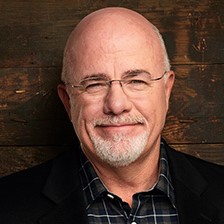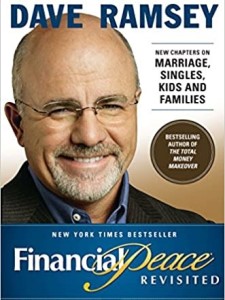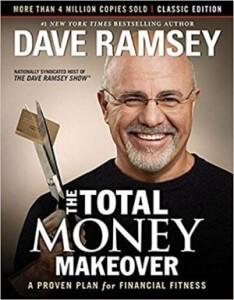Dave Ramsey’s Divorce Advice

Dave Ramsey’s Divorce Advice
On his talk show, Dave Ramsey runs callers through many of the same questions a divorce attorney would ask. To determine where spouses are financially, he needs to know their ages and educational levels, how long they’ve been married, and if they have minor children. Assessment requires details about income, assets, savings, and retirement accounts, along with debts, mortgages, car loans, and credit cards.
Have You Tried Marriage Counseling?
Family economics won’t tell the whole story. Before offering advice, Ramsey wants to know where the spouses are emotionally and spiritually. Marriage is a tremendous investment. He encourages marriage counseling, even when one spouse declines. Counseling provides emotional support and useful information, especially when a spouse has mental health concerns or anger management issues. No matter how tough things are, counseling sessions with a trusted advisor could help save the relationship.
Ramsey takes an unabashedly Christian perspective – marriage is a spiritual relationship, and divorce should be avoided. Through faith and life experience, he has witnessed how spouses prosper by intentionally strengthening their partnership in worshiping, praying, serving, and giving together. Instead of leading separate financial lives, Ramsey encourages spouses to communicate and make financial decisions together. He also believes the divorce process turns marriage into a business transaction.
Money Problems Stress Marriage
Financial problems will put a strain on any marriage. Couples argue over money, blaming each other for their situation. They feel hopeless, lose faith in their relationship, and stop working together to solve problems. They start wondering if they’d be better off alone, divorced, or married to someone else. They stop communicating and withdraw. Does any of this sound familiar?
Many listeners to The Dave Ramsey Show call in with similar debt concerns. Patiently, yet firmly, Ramsey explains how to get out of debt, stay out of debt, and live better. His Financial Peace University (available in many different cities, see “Find a City Near You”) helps people regain control of their finances, guiding and improving their lives in truly meaningful ways. Of Ramsey’s books, a good place to begin reading is his Financial Peace Revisited and The Total Money Makeover.
Learn to Live Lean, Not Mean
Divorce has an economic impact on the family. It’s unavoidable. Once spouses separate, each typically experiences increased living expenses. Most leave a two-income household for a single-income household. Many will depend almost entirely upon some form of alimony as well, at least for a time.
Lawyers, experts, and court proceedings cost money, too. Where will those funds come from? Upon request, the judge could order one spouse to pay all or part of the other’s attorney’s fees. Even if anticipated, reimbursement is unlikely before the divorce decree. What to do in the interim?
To ease the transition, approach debt recovery in manageable steps. Ramsey offers constructive tips on conserving resources and remaining financially stable before, during, and after divorce. Learn to live lean and differentiate wants from needs.
Regain Financial Independence

Dave Ramsey’s Financial Peace Revisited is a must-have for your personal library. MMFLG offers free copies of FPR to all clients.
Ramsey teaches the value of financial independence and how to achieve it. He recommends paying off all debt using the “debt snowball.” Take baby steps. Save money with home-cooked meals of “rice and beans, and beans and rice.” The ends – being debt free – justify the means.
Create a budget and stick to it. How much will cover the monthly expenses? Try Ramsey’s system of labeling separate envelopes and inserting cash for food, household supplies, the rent or mortgage, utilities, car payments, fuel, and so on. Set cash aside in the emergency envelope, too.
You may be tempted to ignore the budget and overspend on your child, especially if the other parent has temporary custody. Don’t try to win your child’s love and allegiance by outspending the other parent. Don’t overcompensate by maintaining a pre-divorce lifestyle that is now beyond your means. Many emotions accompany divorce, including feelings of guilt. Stay focused on the child’s basic requirements – food, shelter, clothing, daycare, healthcare, school, and any special needs.
Don’t go over budget. In fact, try to stay under budget. Cut back on spending, then cut back some more. Brown bag your lunch to work or class, skip the coffee shop, and stop dining out at restaurants. Stop using credit cards, buy with cash instead. Tracking credit transactions is difficult, but you’ll remember every dollar gone from your budget envelopes.
Consult a Divorce Attorney
Take Ramsey’s divorce advice to heart. Consult an attorney, break things down into steps, and set goals. Start with your long term goals. Where do you want to be in 10 years? In 20 years? Set the short term goals that will bring you there.
Consulting a divorce attorney is essential for the best possible outcome. Always obtain independent legal advice to protect your rights and interests.
Consider this example. A 23-year-old caller to Ramsey’s radio show recently moved from Florida to Texas with her husband and kids. Soon after, her husband declares he is filing for divorce. Her family and support network are back in Florida. She is isolated in a new city, in a new state, raising two small children. The only divorce information she has is filtered through her husband and may not be accurate.
Relocation to Texas undermined the wife’s confidence and destabilized her. She is convinced her husband will not allow her to move back to Florida with the children. However, that is for the court to decide, because the best interests of the children take priority. Ramsey recommended she consult an attorney immediately.
Divorce laws matter. Texas law could give this husband a strategic advantage. Unlike Texas, Florida’s alimony laws are more favorable to the wife. Unlike Florida, Texas is a community property state. How will she know her legal rights and options without talking to a lawyer? How can she set long-term goals and plan her next steps? Can she and the children move back to Florida? Will she get alimony? How will assets and debts be divided? What about a parenting plan and child support? Without competent legal advice she will remain in a vulnerable position throughout the divorce proceedings, which would surely end up being a lopsided affair.
Dividing Debts in Divorce
How does divorce address debts? Another Ramsey caller asked about the family car in a divorce. Who pays the loan and who gets the car? The attorney will need more information to answer that. Whose name is on the title? Whose name is on the loan? How much is owed? Who is driving it?
Ramsey advised trying to reach an agreement for settling property division. By negotiating a settlement with their attorneys’ assistance, nothing is omitted, and neither spouse is left vulnerable. Without a Marital Dissolution Agreement, the judge must make a determination based upon the evidence. With an MDA, the spouses control their asset and debt division.
Is It Time to End the Marriage?
How does a spouse know it’s time to end the marriage over debt issues? After 20 years of marriage and three years separation, a husband calls into the show. His wife overspends, and he wants a divorce. They tried marriage counseling before, and he admitted to past anger issues. They each earn about $37,000 a year. Together they owe about $50,000. She has $73,400 in student loans but never earned a degree. He is still paying her bills, and she is still overspending on credit.
Ramsey’s advice was sound. If separated for three years, it’s time to either fix the marriage or end it. To try fixing it, both spouses should give marriage counseling another try and make an effort to get back on the same page. They should discuss and agree on a budget and stick to it. They should set long term goals together. Then set the short terms goals that will get them there. If they are not communicating or working together, then the marriage is over. Divorce is the next step.
What about the student loan? The wife will likely be awarded her personal student loan debt in the divorce.
Pre-Divorce Planning
Radio listeners also hear advice on pre-divorce planning. Prepare for separation and divorce the same way. Before filing, avoid a downward spiral by taking steps to stabilize your financial situation. Doing so will also help you cope emotionally.

Dave Ramsey’s Total Money Makeover is THE best book to help you with your budgeting process now.
Get a grip on debts. Budget now for post-divorce income and expenses. Consider seeking a divorce hardship deferral if you have student loans. Close any credit card accounts in both names to prevent new charges. Talk to your lawyer about alimony.
Decide the future of the marital home. Parents often try to stay in the home to maintain the status quo for the kids. Taking on a mortgage is a big deal. If you want to stay, then you will need to refinance and handle the payments alone. Otherwise, let the house go. Make a plan to sell it and divide the proceeds. As Ramsey says, don’t let the house be the anchor that takes you down financially. Home will always be where the heart is. Buy something affordable or consider renting.
Already Served with Divorce Papers
Has your spouse served you with divorce papers? Stay calm. Rarely does it matter who files first. The divorce complaint can include a proposed plan for division of property, child custody, alimony, and so on. This is the filing spouse’s wish list, which doesn’t make it fair or reasonable.
There may be a lump sum payoff without alimony. As Ramsey told another caller, something is up when a spouse tries to buy his or her way out of a divorce. There may be hidden assets, under-valued property, or undisclosed income. All of these must be brought into the light of day.
Doing nothing – not answering the complaint – can result in a default decree. Instead, go over the pleadings with an attorney. Do the math. Formulate an appropriate response, and file your answer. This begins the settlement process.
When a Family Member Gets Divorced
How can you help a family member get through this experience? For one, be emotionally supportive even if you live a distance away. More than likely, he or she is scared, broke, hurting, and vulnerable.
Secondly, help your family member develop some very clear next-steps. Offer advice on how to build a career and financial independence. Reinforce how it takes action to avoid an income crisis. Maybe recommend Financial Peace University.
Ramsey believes the diligent prosper. He says, “Work like it all depends on you, and pray like it all depends on God.” Encourage your family member to work a plan, work a system, work hard, work all the time, and make money.
Life after divorce will be different. As Ramsey would say, it’s not what you signed up for, but it is what you’re dealing with now. This is your second act. Embrace the future, it could be really exciting.
About Dave Ramsey
Tennessee’s Dave Ramsey is a best-selling author, creator of Financial Peace University, and founder of Ramsey Solutions. He hosts The Dave Ramsey Show, an internationally syndicated radio talk show on personal finance. His books include Financial Peace Revisited, The Total Money Makeover, and Complete Guide to Money. Visit www.daveramsey.com.
Author’s Note: I am a big fan of Dave Ramsey. I:
- buy Dave Ramsey’s FPR book in bulk to give away to clients;
- attended his Financial Peace University course;
- personally pay ½ of all FPU tuition for every staff member who take it;
- recommend FPU to all clients; and
- attended his EntreLeadership conference.
In other words, I drank “the Dave Ramsey Kool-Aid” and my life is better for it.
Dave Ramsey Divorce Advice YouTube Links:
- My Husband Just Told Me He’s Divorcing Me
- Divorcing My Wife Because She’s Overspending?
- I’m Preparing For A Divorce
- My Husband Served Me Divorce Papers
- How Can I Help My Sister Who Is Going Through A Divorce?
- Dealing With Debt During A Divorce
- Going Through A Divorce, Should I Sell The House?
- Getting A Divorce; How Do I Stay Out Of Debt?
- Surviving Financially During Divorce: Dave Ramsey | DivorceCare









